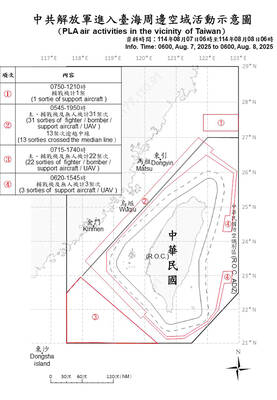Singapore's inflation last month held near the highest since 1982, signaling the central bank may allow the currency to strengthen to contain price pressures.
The consumer price index jumped 6.5 percent from a year earlier, after gaining 6.6 percent in January, the Department of Statistics said yesterday. Economists had estimated a 6.8 percent increase. Prices rose 0.5 percent from January.
The Singapore dollar this month rose to an all-time high versus the US currency, helping reduce import costs even as food and energy prices rose. The Monetary Authority of Singapore, which expects inflation this year to gain at more than double last year's pace, will release its twice-yearly review of the currency next month.
"It makes sense for the central bank to keep its stance of allowing the currency to appreciate as it will help the economy cope with imported inflation," said Alvin Liew, an economist at Standard Chartered Bank in Singapore. "Still, there are also domestic sources of inflation and other measures may be needed to bring that down."
The Singapore dollar has gained 3.4 percent this year. The central bank -- which has sought a "gradual and modest" strengthening in the currency since April 2004 -- said in October it would allow a "slightly" faster appreciation in the Singapore dollar.
The city-state's currency fell 0.3 percent to S$1.3903 against the US dollar as of 1:15pm.
Singapore's central bank expects inflation to average between 4.5 percent and 5.5 percent this year, after gaining 2.1 percent last year.
"The underlying momentum in inflation remained stable," the government said in a statement yesterday.
Food prices, which make up 23 percent of the index, rose 6.7 percent last month from a year ago, following January's 5.8 percent increase. From January, food prices gained 1.3 percent.
Rising prices of daily food essentials have prompted the government to roll out a campaign which included newspaper and television advertisements to encourage consumers to switch to cheaper frozen meats from fresh ones.
Transport and communication costs, the second-biggest component at 22 percent of the consumer price index, climbed 7.6 percent last month from a year earlier. From January, transport and communication prices fell 0.1 percent.
Oil prices breached US$110 a barrel this month, increasing fuel and transport costs for consumers. The Singaporean government doesn't subsidize pump prices, leading gasoline companies to pass on the rising gasoline and diesel costs to car owners.
Housing costs, the third-largest component of the price index, climbed 8.8 percent from a year ago. Housing prices rose 0.5 percent. from a month ago.

Authorities have detained three former Taiwan Semiconductor Manufacturing Co (TMSC, 台積電) employees on suspicion of compromising classified technology used in making 2-nanometer chips, the Taiwan High Prosecutors’ Office said yesterday. Prosecutors are holding a former TSMC engineer surnamed Chen (陳) and two recently sacked TSMC engineers, including one person surnamed Wu (吳) in detention with restricted communication, following an investigation launched on July 25, a statement said. The announcement came a day after Nikkei Asia reported on the technology theft in an exclusive story, saying TSMC had fired two workers for contravening data rules on advanced chipmaking technology. Two-nanometer wafers are the most

DEFENSE: The first set of three NASAMS that were previously purchased is expected to be delivered by the end of this year and deployed near the capital, sources said Taiwan plans to procure 28 more sets of M-142 High Mobility Artillery Rocket Systems (HIMARS), as well as nine additional sets of National Advanced Surface-to-Air Missile Systems (NASAMS), military sources said yesterday. Taiwan had previously purchased 29 HIMARS launchers from the US and received the first 11 last year. Once the planned purchases are completed and delivered, Taiwan would have 57 sets of HIMARS. The army has also increased the number of MGM-140 Army Tactical Missile Systems (ATACMS) purchased from 64 to 84, the sources added. Each HIMARS launch pod can carry six Guided Multiple Launch Rocket Systems, capable of

CHINA’s BULLYING: The former British prime minister said that he believes ‘Taiwan can and will’ protect its freedom and democracy, as its people are lovers of liberty Former British prime minister Boris Johnson yesterday said Western nations should have the courage to stand with and deepen their economic partnerships with Taiwan in the face of China’s intensified pressure. He made the remarks at the ninth Ketagalan Forum: 2025 Indo-Pacific Security Dialogue hosted by the Ministry of Foreign Affairs and the Prospect Foundation in Taipei. Johnson, who is visiting Taiwan for the first time, said he had seen Taiwan’s coastline on a screen on his indoor bicycle, but wanted to learn more about the nation, including its artificial intelligence (AI) development, the key technology of the 21st century. Calling himself an

Sixty-three Chinese incursions into waters and airspace around Taiwan were detected in the 24 hours to 6am yesterday, with 38 craft crossing the median line of the Taiwan Strait and entering the nation’s northern, central, southwestern and eastern air defense identification zones, the Ministry of National Defense (MND) said. The activity represented a ramp-up of Beijing’s “gray zone” warfare directed at Taiwan over the past two days, the ministry said. A wave of 31 Chinese craft, consisting of fighters, fighter-bombers and uncrewed aerial vehicles, was tracked from 5:45am to 7:50am on Thursday, it said. In an apparent act of provocation, 13 of them